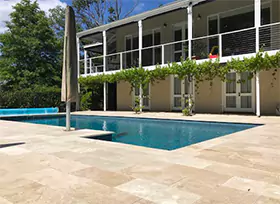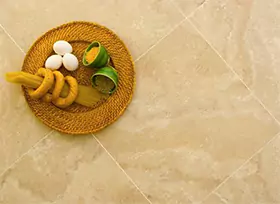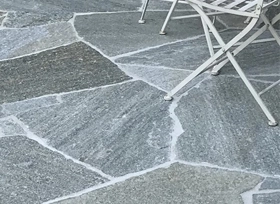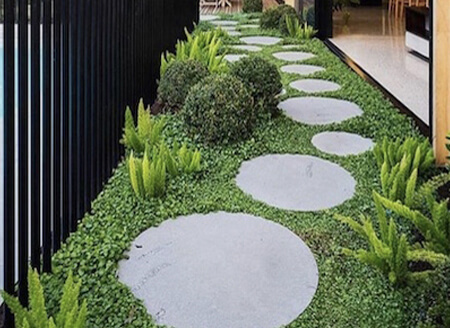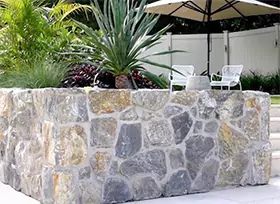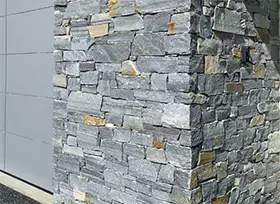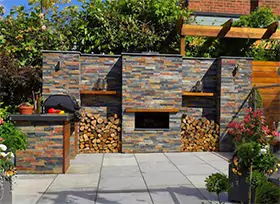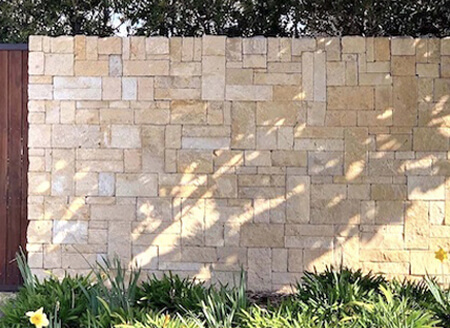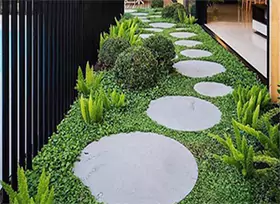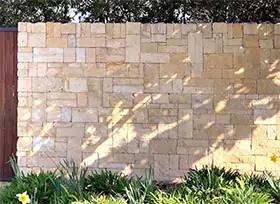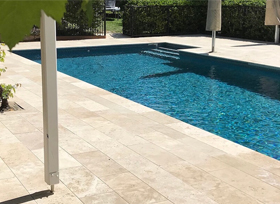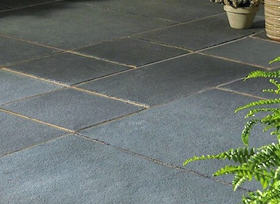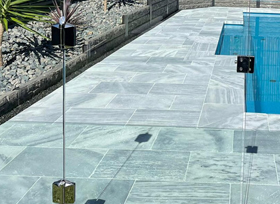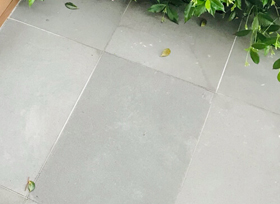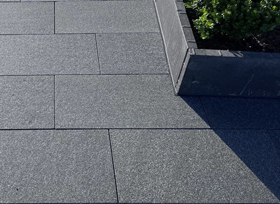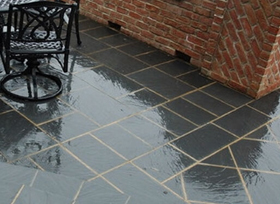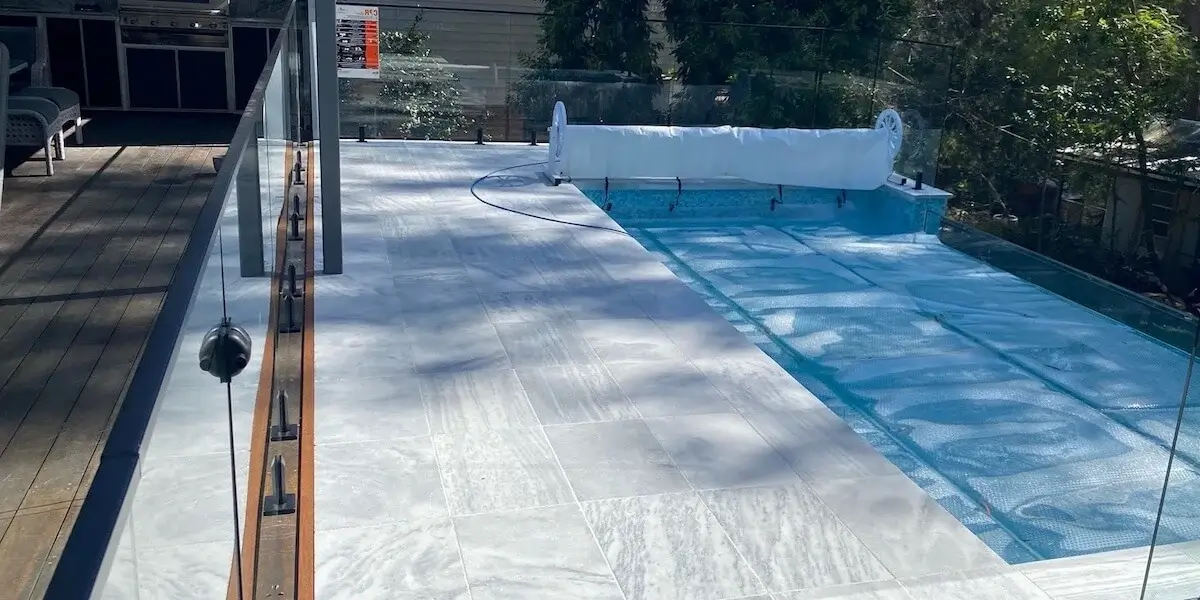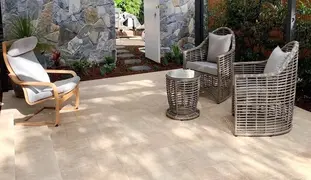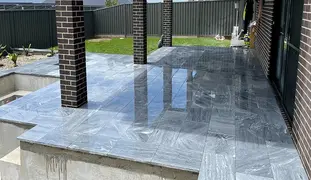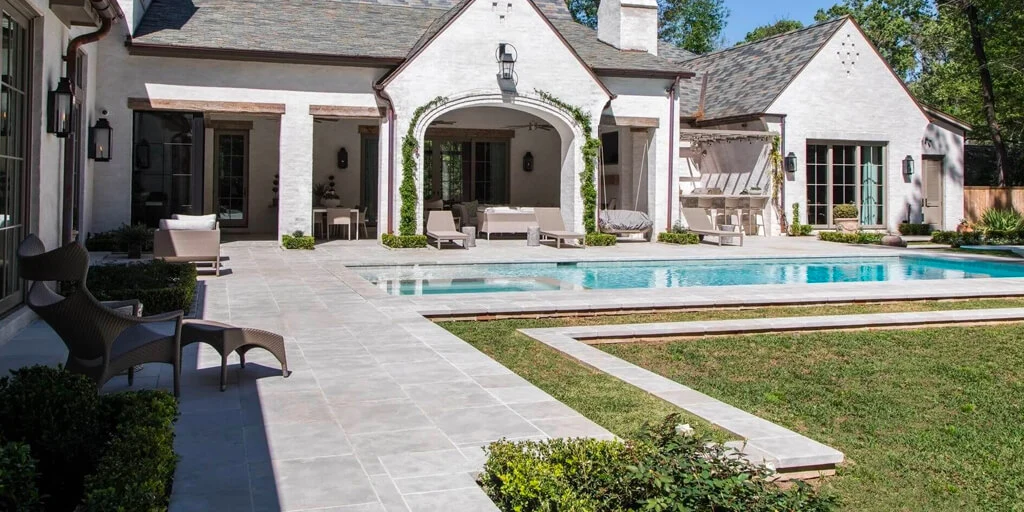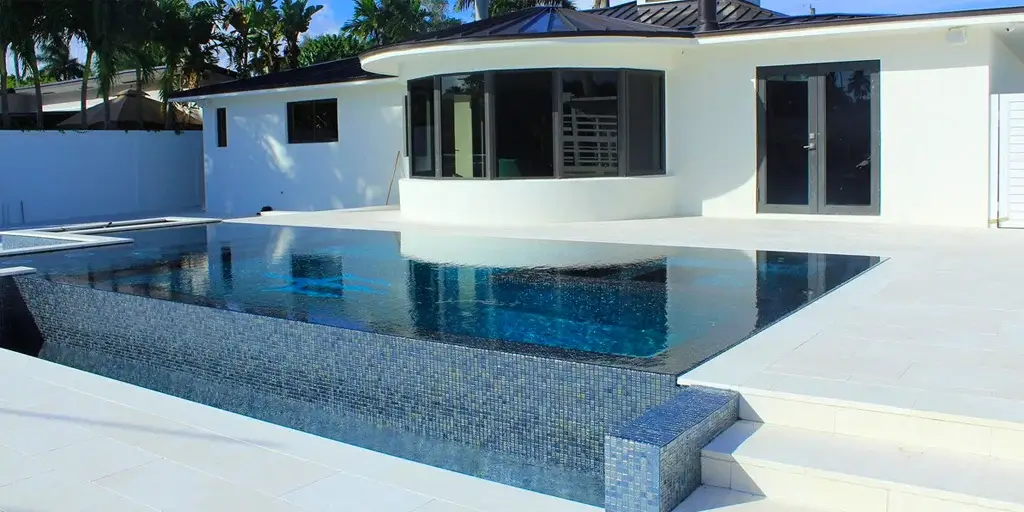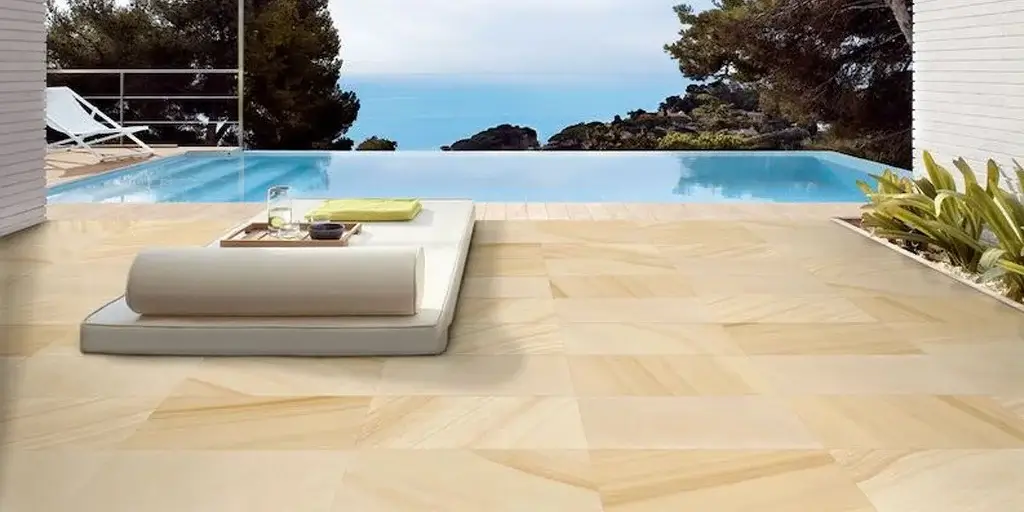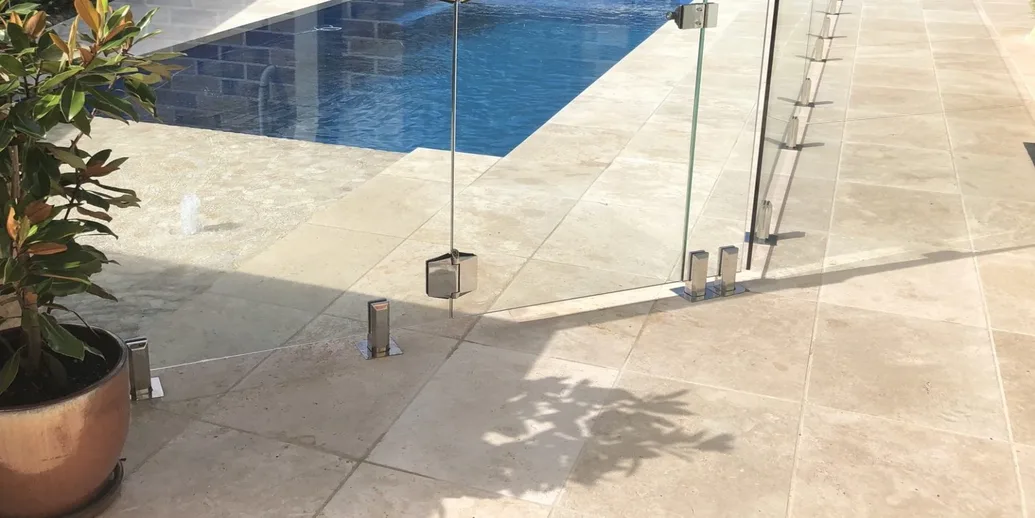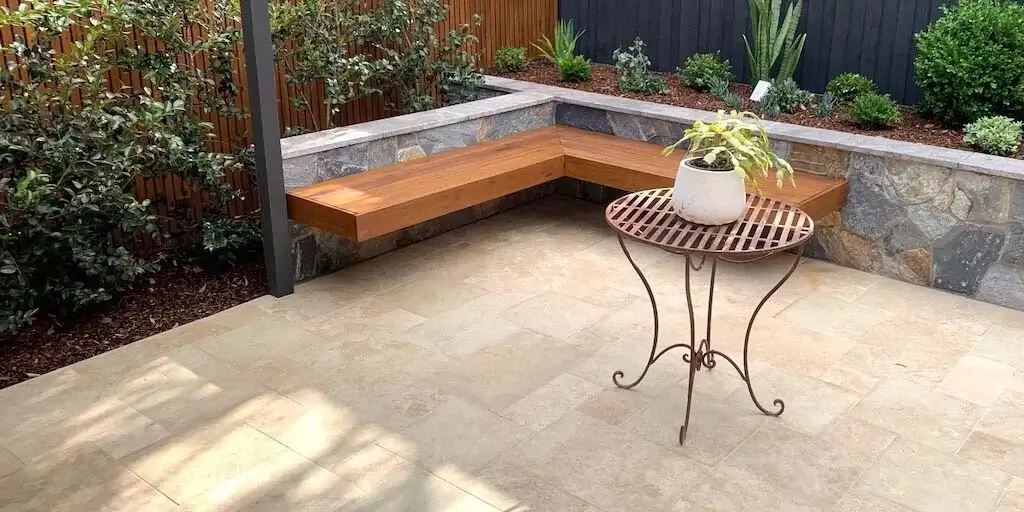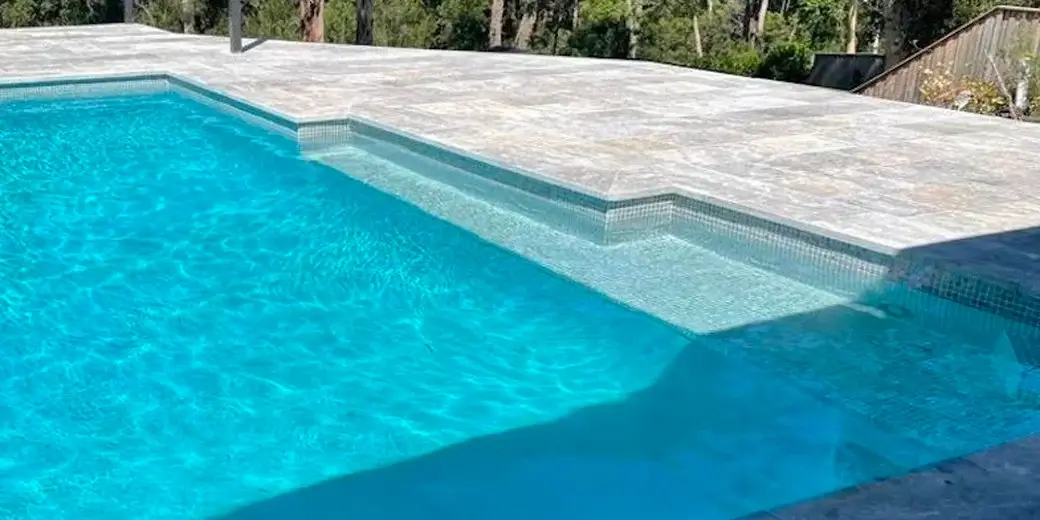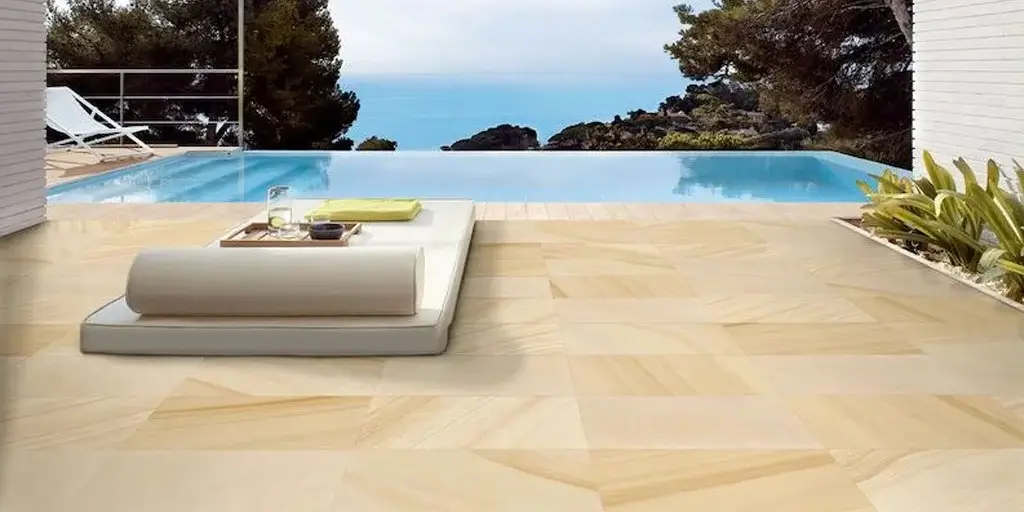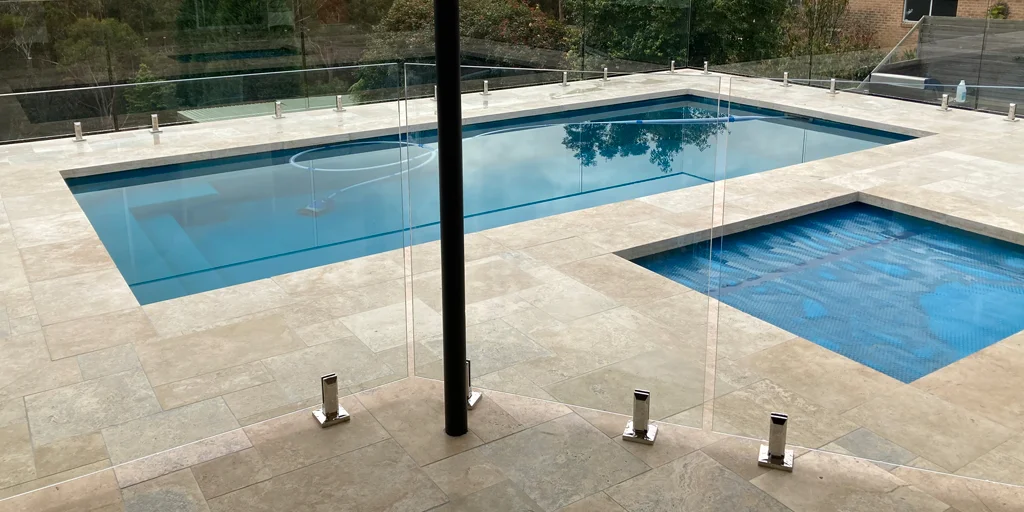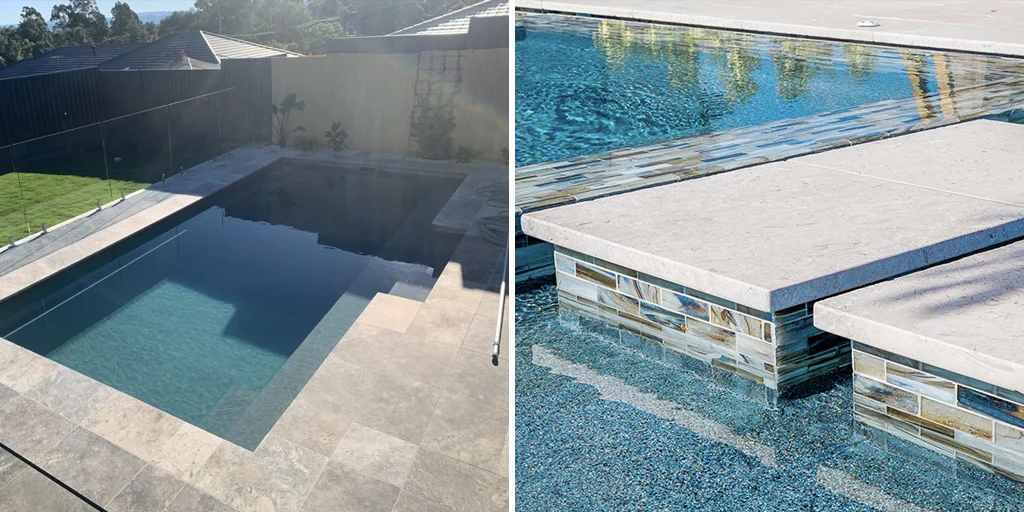A swimming pool would appear arid and lifeless without floor tiles and copings. Floor tiles can improve the appearance of this feature in your home. You are sadly mistaken if you believe choosing pool floor tiles is all about colour, style and aesthetics. There are pool mosaic tiles, glass tiles and even natural stone tiles to select from.
You still need to think about several various factors before purchasing one.
- Durability: Pool tiles and pavers should resist deterioration even under prolonged exposure to water, chemicals and varying weather conditions.
- Safety: It is the utmost priority. To avoid slipping and falling, especially when the tiles are wet, choose pool pavers or tiles with a rough surface.
- Maintenance: Simple maintenance is crucial. Pick pool tiles or pavers that are easy to clean and resistant to mould, algae and stains.
- Heat Reflectivity: Even under the blazing sun, the tiles’ capacity to reflect heat keeps the surface at a pleasant temperature for walking.
- Colour Fastness: Pool tiles should not fade over time because of exposure to chemicals or sunlight.
- Chemical Resistance: To clean the water, chemicals are added to pools. To avoid deterioration and discolouration, pool coping tiles should resist certain substances.
- Style and Aesthetics: Although not the primary factor, the appearance of the tiles is nonetheless important. They ought to blend in with your pool area’s overall decor.
Travertine pool pavers and tiles stand out among these factors as a great option. Let’s know some of the features of Travertine pool pavers and tiles.
Features of Travertine pool paver:
Heat-resisting nature: Travertine is a great option to consider as a pool paver if you are remodelling or building a pool area. Extreme temperatures are not a problem for Travertine. The incompatibility of other materials with changing temperatures is our most frequent problem. Due to the direct sunlight exposure, they become extremely hot during the summer and can frequently result in burns if trodden on accidentally. However, if someone walks barefoot on Travertine pool coping tiles or surrounds, they will still feel cool to the touch. Because of this, Travertine pool pavers are among the most popular materials for landscaping projects at homes.
Aesthetic value: Travertine installations exude pure elegance, especially when employed as a pool paver. Every piece of stone appears incredibly unique due to the natural veining pattern. Additionally, the variety of finishes and colours, including strong pink shades, neutral grey or tan and mocha, make it an outstanding pick.
Effective at removing water: Pools require pavement material with an effective drainage system. Travertine meets the criteria for a reliable pool paving material because of its very porous quality. Travertine’s surface is covered with a variety of large and small pores, allowing stored water to flow freely. Due to the short duration of the wetness, it becomes less slippery. Due to its non-porous nature, Travertine coping tiles and surrounds is extremely resistant to the growth of moss, bacteria and other microorganisms. It means that you don’t need to be vigilant when cleaning it.
Decreased chance of fading: Travertine pool tiles or pavers demonstrate resilience to fading, in contrast to many other paving materials. Travertine is renowned for maintaining its original hue for decades despite exposure to harsh environmental factors. It doesn’t generate any crystalline deposits, which are typical of other paving materials and maintains its natural state. It is the perfect option for the pool area because it resists efflorescence even when exposed to sunshine continuously. Otherwise, other materials have problems, including colour changes to brown and black, the development of white deposits, surface weakening and much more. By using Travertine pool pavers or tiles, you may keep its distinctive appearance while avoiding these problems altogether.
Environmentally responsible option: Travertine pool pavers provide a method to live luxuriously while being environmentally friendly. The procedure used to make Travertine differs considerably from that used to make marble or porcelain, which explains why. It is environmentally benign because no harsh chemicals are used to create a usable product in the conversion process. Additionally, the stone provides a naturally non-slip surface that can be utilised without requiring extensive alteration with chemical sealers and other treatments. This enables the travertine stone to be used in its natural state with only a small amount of modification, which is very environmentally friendly. The better for the environment a substance is, the less processing it requires.
Resilience and power: Do you realise that Travertine is two times as sturdy as concrete? This is because of the lengthy, intense processes it goes through, including compression, evaporation, transformation and sedimentation. It becomes resistant to harmful elements when exposed to low pressure and temperature conditions. As a result, the stone keeps its original colour and structure for a long time, making it more beautiful with time. Overall, they have a longer lifespan in terms of structure and colouring. You can weigh Travertine’s advantages and disadvantages before making a final selection.
How to Clean Travertine Pavers and Tiles
Remove all organic material: Before cleaning, use a pool vacuum or net skimmer to remove most of any leaves, grass clippings, or other organic debris from your pool’s water.
Take the Waterline Off: If your pool’s waterline is slightly lower than usual, cleaning the soiled tiles will be simpler. In a pinch, you can omit this step and instead use a pool pump to complete the task.
Use a Scrub Brush: Scrub away the mineral deposits with a stiff-bristled scrub brush that doesn’t have wire bristles. Work in a three- to four-foot-wide area in a circular motion. A soft-bristled brush is preferable for Travertine tiles to avoid scratching the glass.
Some other tips:
- Even though these cleaning agents are non-toxic, wearing goggles or other eye protection is advised to prevent splatters into the eyes.
- To prevent the accumulation of any algae, organic debris, chemical deposits, or scale, clean the pool tiles routinely and on a schedule.
- Verify that the chemical levels in your pool are acceptable; any variance that isn’t at its best will promote the growth of algae or other deposits.
- Try utilising natural cleaners that are not acidic due to the stone’s porous nature when you observe a small amount of scum at the water line. These delicate cleaners won’t alter the pH of your pool’s water.
Conclusion:
It makes sense that the outside aesthetic of your property might be significantly influenced by the material you choose for the pool paving. Travertine pavers are a classy alternative to the various options for pool areas. If you want a pool area that will last, think about purchasing Travertine pool pavers.
Travertine pool pavers and tiles are the best options for Australians looking to improve their pool areas with a balance of practicality and timelessness due to their longevity, safety, aesthetic appeal and environmental concern.
*Disclaimer: All information and advice given above in the blog are to the best of our knowledge. Please reconfirm at your end before execution.



